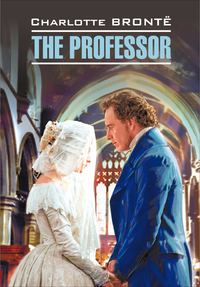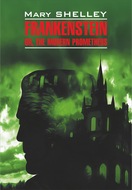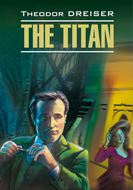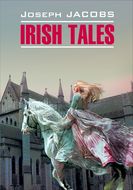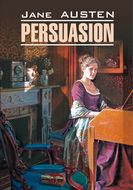Kitabı oku: «The Professor / Учитель. Книга для чтения на английском языке»
Комментарии и словарь Е. Г. Тигонен
© КАРО, 2012
Об авторе
Английская писательница Шарлотта Бронте родилась 22 июня 1816 года в семье сельского священника в Йоркшире. Ее мать умерла, оставив своему бедному мужу семью из пяти дочерей и сына. Шарлотте в ту пору было всего пять лет. Две ее старшие сестры в 1824 году поступили в школу в Ковэн-Бридже, но год спустя вернулись больными и умерли одна за другой. Девятилетняя Шарлотта вынуждена была взять на себя обязанности хозяйки дома и заботу о младших сестрах и брате и продолжала образование дома, отдаваясь своей склонности к писательству.
Весной 1846 года Шарлотта и ее младшие сестры Эмилия и Энн решились выступить с первыми плодами своей литературной деятельности. Вышел в свет небольшой томик их стихов под мужскими псевдонимами Коррер (Шарлотта), Эллис (Эмилия) и Актон (Энн) Бель. К сожалению, книга осталась незамеченной публикой.
В 1849 году появился роман «Джен Эйр», завоевавший огромный успех и переведенный на многие европейские языки. Не много найдется книг с неизвестным именем автора на обложке, которые были бы встречены с таким бесспорным одобрением. К автору возник всеобщий интерес, но скромная писательница не открывала своего настоящего имени.
На фоне трагических обстоятельств жизни писательницы (в сентябре 1848 года умер ее младший брат, в декабре того же года – Эмилия, в мае следующего – Энн) вышел в свет второй роман Шарлотты Бронте «Шерли» (1849), вызвавший к себе огромный интерес мастерски нарисованной картиной жизни рабочих в провинции. Перед Шарлоттой открылись двери лучших литературных кружков Лондона, но привыкшая к уединению писательница тяготилась общественным вниманием и почти все время проводила в своем старом доме. В 1853 году вышел в свет ее последний роман «Городок».
В следующем году Шарлотта вышла замуж за Артура Николлса Бейлля, священника в приходе своего отца, но уже 31 марта 1855 года она умерла, сильно простудившись во время одной из прогулок по своим любимым вересковым лугам. Простуда вызвала обострение туберкулеза, от которого умерли все ее сестры и мать.
Шарлотта Бронте считается одной из талантливейших представительниц школы Теккерея, ее любимого писателя. Обладая нервным и впечатлительным темпераментом, она владела тем, что Гёте называл секретом гения, – способностью проникнуться индивидуальностью и субъективным настроением постороннего лица. Она с поразительной яркостью изображала все, что ей приходилось видеть и чувствовать. Если иногда чрезмерная яркость образов переходит в некоторую грубость красок, а излишний мелодраматизм в положениях и сентиментальный финал ослабляют художественное впечатление, то реализм, с которым изображены события, разворачивающиеся в ее романах, делает эти недостатки незаметными.
* * *
Несколько месяцев в 1842 году Шарлотта и Эмилия Бронте провели в Брюсселе, где совершенствовались во французском языке. Тетка, заботившаяся о девушках после смерти их матери, согласилась оплачивать их пребывание в одном из пансионов, чтобы в дальнейшем, вернувшись в Англию, Шарлотта и Эмилия могли основать школу. Впечатления от этого периода легли в основу первого романа Шарлотты Бронте «Учитель», вышедшего в свет посмертно в 1857 году.
Chapter I
Introductory
The other day, in looking over my papers, I found in my desk the following copy of a letter, sent by me a year since to an old school acquaintance:
“DEAR CHARLES, “I think when you and I were at Eton together, we were neither of us what could be called popular characters: you were a sarcastic, observant, shrewd, cold-blooded creature; my own portrait I will not attempt to draw, but I cannot recollect that it was a strikingly attractive one – can you? What animal magnetism drew thee and me together I know not; certainly I never experienced anything of the Pylades and Orestes1 sentiment for you, and I have reason to believe that you, on your part, were equally free from all romantic regard to me. Still, out of school hours we walked and talked continually together; when the theme of conversation was our companions or our masters we understood each other, and when I recurred to some sentiment of affection, some vague love of an excellent or beautiful object, whether in animate or inanimate nature, your sardonic coldness did not move me. I felt myself superior to that check THEN as I do NOW.
“It is a long time since I wrote to you, and a still longer time since I saw you. Chancing to take up a newspaper of your county the other day, my eye fell upon your name. I began to think of old times; to run over the events which have transpired since we separated; and I sat down and commenced this letter. What you have been doing I know not; but you shall hear, if you choose to listen, how the world has wagged with me2.
“First, after leaving Eton, I had an interview with my maternal uncles, Lord Tynedale and the Hon.3 John Seacombe. They asked me if I would enter the Church, and my uncle the nobleman offered me the living of Seacombe, which is in his gift, if I would4; then my other uncle, Mr. Seacombe, hinted that when I became rector of Seacombe-cum-Scaife, I might perhaps be allowed to take, as mistress of my house and head of my parish, one of my six cousins, his daughters, all of whom I greatly dislike.
“I declined both the Church and matrimony. A good clergyman is a good thing, but I should have made a very bad one. As to the wife – oh how like a night-mare is the thought of being bound for life to one of my cousins! No doubt they are accomplished and pretty; but not an accomplishment, not a charm of theirs, touches a chord in my bosom5. To think of passing the winter evenings by the parlour fire-side of Seacombe Rectory alone with one of them – for instance, the large and well-modelled statue, Sarah – no; I should be a bad husband, under such circumstances, as well as a bad clergyman.
“When I had declined my uncles’ offers they asked me ‘What I intended to do?’ I said I should reflect6. They reminded me that I had no fortune, and no expectation of any, and, after a considerable pause, Lord Tynedale demanded sternly, ‘Whether I had thoughts of following my father’s steps and engaging in trade?’ Now, I had had no thoughts of the sort. I do not think that my turn of mind qualifies me to make a good tradesman; my taste, my ambition does not lie in that way; but such was the scorn expressed in Lord Tynedale’s countenance as he pronounced the word TRADE – such the contemptuous sarcasm of his tone – that I was instantly decided. My father was but a name to me, yet that name I did not like to hear mentioned with a sneer to my very face. I answered then, with haste and warmth, ‘I cannot do better than follow in my father’s steps; yes, I will be a tradesman.’ My uncles did not remonstrate; they and I parted with mutual disgust. In reviewing this transaction, I find that I was quite right to shake off the burden of Tynedale’s patronage, but a fool to offer my shoulders instantly for the reception of another burden – one which might be more intolerable, and which certainly was yet untried.
“I wrote instantly to Edward – you know Edward – my only brother, ten years my senior, married to a rich mill-owner’s daughter, and now possessor of the mill and business which was my father’s before he failed. You are aware that my father – once reckoned a Croesus7 of wealth – became bankrupt a short time previous to his death, and that my mother lived in destitution for some six months after him, unhelped by her aristocratical brothers, whom she had mortally offended by her union with Crimsworth, the – — shire manufacturer. At the end of the six months she brought me into the world, and then herself left it without, I should think, much regret, as it contained little hope or comfort for her.
“My father’s relations took charge of Edward, as they did of me, till I was nine years old. At that period it chanced that the representation of an important borough in our county fell vacant; Mr. Seacombe stood for it. My uncle Crimsworth, an astute mercantile man, took the opportunity of writing a fierce letter to the candidate, stating that if he and Lord Tynedale did not consent to do something towards the support of their sister’s orphan children, he would expose their relentless and malignant conduct towards that sister, and do his best to turn the circumstances against Mr. Seacombe’s election. That gentleman and Lord T. knew well enough that the Crimsworths were an unscrupulous and determined race; they knew also that they had influence in the borough of X – — ; and, making a virtue of necessity, they consented to defray the expenses of my education. I was sent to Eton, where I remained ten years, during which space of time Edward and I never met. He, when he grew up, entered into trade, and pursued his calling with such diligence, ability, and success, that now, in his thirtieth year, he was fast making a fortune. Of this I was apprised by the occasional short letters I received from him, some three or four times a year; which said letters never concluded without some expression of determined enmity against the house of Seacombe, and some reproach to me for living, as he said, on the bounty of that house. At first, while still in boyhood, I could not understand why, as I had no parents, I should not be indebted to my uncles Tynedale and Seacombe for my education; but as I grew up, and heard by degrees of the persevering hostility, the hatred till death evinced by them against my father – of the sufferings of my mother – of all the wrongs, in short, of our house – then did I conceive shame of the dependence in which I lived, and form a resolution no more to take bread from hands which had refused to minister to the necessities of my dying mother8. It was by these feelings I was influenced when I refused the Rectory of Seacombe, and the union with one of my patrician cousins.
“An irreparable breach thus being effected between my uncles and myself, I wrote to Edward; told him what had occurred, and informed him of my intention to follow his steps and be a tradesman. I asked, moreover, if he could give me employment. His answer expressed no approbation of my conduct, but he said I might come down to – — shire, if I liked, and he would ‘See what could be done in the way of furnishing me with work9.’ I repressed all – even mental comment on his note – packed my trunk and carpet-bag, and started for the North directly.
“After two days’ travelling (railroads were not then in existence) I arrived, one wet October afternoon, in the town of X – — . I had always understood that Edward lived in this town, but on inquiry I found that it was only Mr. Crimsworth’s mill and warehouse which were situated in the smoky atmosphere of Bigben Close; his residence lay four miles out, in the country.
“It was late in the evening when I alighted at the gates of the habitation designated to me as my brother’s. As I advanced up the avenue, I could see through the shades of twilight, and the dark gloomy mists which deepened those shades, that the house was large, and the grounds surrounding it sufficiently spacious. I paused a moment on the lawn in front, and leaning my back against a tall tree which rose in the centre, I gazed with interest on the exterior of Crimsworth Hall.
“‘Edward is rich,’ thought I to myself. ‘I believed him to be doing well10 – but I did not know he was master of a mansion like this.’ Cutting short all marvelling; speculation, conjecture, etc., I advanced to the front door and rang. A man-servant opened it – I announced myself – he relieved me of my wet cloak and carpet-bag, and ushered me into a room furnished as a library, where there was a bright fire and candles burning on the table; he informed me that his master was not yet returned from X – — market, but that he would certainly be at home in the course of half an hour.
“Being left to myself, I took the stuffed easy chair, covered with red morocco, which stood by the fireside, and while my eyes watched the flames dart from the glowing coals, and the cinders fall at intervals on the hearth, my mind busied itself in conjectures concerning the meeting about to take place. Amidst much that was doubtful in the subject of these conjectures, there was one thing tolerably certain – I was in no danger of encountering severe disappointment; from this, the moderation of my expectations guaranteed me. I anticipated no overflowings of fraternal tenderness; Edward’s letters had always been such as to prevent the engendering or harbouring of delusions of this sort. Still, as I sat awaiting his arrival, I felt eager – very eager – I cannot tell you why; my hand, so utterly a stranger to the grasp of a kindred hand, clenched itself to repress the tremor with which impatience would fain have shaken it.
“I thought of my uncles; and as I was engaged in wondering whether Edward’s indifference would equal the cold disdain I had always experienced from them, I heard the avenue gates open: wheels approached the house; Mr. Crimsworth was arrived; and after the lapse of some minutes11, and a brief dialogue between himself and his servant in the hall, his tread drew near the library door – that tread alone announced the master of the house.
“I still retained some confused recollection of Edward as he was ten years ago – a tall, wiry, raw youth; NOW, as I rose from my seat and turned towards the library door, I saw a fine-looking and powerful man, light-complexioned, well-made, and of athletic proportions; the first glance made me aware of an air of promptitude and sharpness, shown as well in his movements as in his port, his eye, and the general expression of his face. He greeted me with brevity, and, in the moment of shaking hands, scanned me from head to foot; he took his seat in the morocco covered arm-chair, and motioned me to another sent.
“‘I expected you would have called at the counting-house in the Close,’ said he; and his voice, I noticed, had an abrupt accent, probably habitual to him; he spoke also with a guttural northern tone, which sounded harsh in my ears, accustomed to the silvery utterance of the South.
“‘The landlord of the inn, where the coach stopped, directed me here,’ said I. ‘I doubted at first the accuracy of his information12, not being aware that you had such a residence as this.’
“‘Oh, it is all right!’ he replied, ‘only I was kept half an hour behind time, waiting for you – that is all. I thought you must be coming by the eight o’clock coach.’
“I expressed regret that he had had to wait; he made no answer, but stirred the fire, as if to cover a movement of impatience; then he scanned me again.
“I felt an inward satisfaction that I had not, in the first moment of meeting, betrayed any warmth, any enthusiasm; that I had saluted this man with a quiet and steady phlegm.
“‘Have you quite broken with Tynedale and Seacombe?’ he asked hastily.
“‘I do not think I shall have any further communication with them; my refusal of their proposals will, I fancy, operate as a barrier against all future intercourse.’
“‘Why,’ said he, ‘I may as well remind you at the very outset of our connection13, that “no man can serve two masters.” Acquaintance with Lord Tynedale will be incompatible with assistance from me.’ There was a kind of gratuitous menace in his eye as he looked at me in finishing this observation.
“Feeling no disposition to reply to him, I contented myself with an inward speculation on the differences which exist in the constitution of men’s minds. I do not know what inference Mr. Crimsworth drew from my silence – whether he considered it a symptom of contumacity or an evidence of my being cowed by his peremptory manner. After a long and hard stare at me, he rose sharply from his seat.
“‘To-morrow,’ said he, ‘I shall call your attention to some other points; but now it is supper time, and Mrs. Crimsworth is probably waiting; will you come?’
“He strode from the room, and I followed. In crossing the hall, I wondered what Mrs. Crimsworth might be. ‘Is she,’ thought I, ‘as alien to what I like as Tynedale, Seacombe, the Misses Seacombe – as the affectionate relative now striding before me? or is she better than these? Shall I, in conversing with her, feel free to show something of my real nature; or – ’ Further conjectures were arrested by my entrance into the dining-room.
“A lamp, burning under a shade of ground-glass, showed a handsome apartment, wainscoted with oak; supper was laid on the table; by the fire-place, standing as if waiting our entrance, appeared a lady; she was young, tall, and well-shaped; her dress was handsome and fashionable: so much my first glance sufficed to ascertain. A gay salutation passed between her and Mr. Crimsworth; she chid him, half-playfully, half-poutingly, for being late; her voice (I always take voices into the account in judging of character14) was lively – it indicated, I thought, good animal spirits. Mr. Crimsworth soon checked her animated scolding with a kiss – a kiss that still told of the bridegroom (they had not yet been married a year); she took her seat at the supper-table in first-rate spirits. Perceiving me, she begged my pardon for not noticing me before, and then shook hands with me, as ladies do when a flow of good-humour disposes them to be cheerful to all, even the most indifferent of their acquaintance. It was now further obvious to me that she had a good complexion, and features sufficiently marked but agreeable; her hair was red – quite red. She and Edward talked much, always in a vein of playful contention; she was vexed, or pretended to be vexed, that he had that day driven a vicious horse in the gig, and he made light of her fears. Sometimes she appealed to me.
“‘Now, Mr. William, isn’t it absurd in Edward to talk so? He says he will drive Jack, and no other horse, and the brute has thrown him twice already.’
“She spoke with a kind of lisp15, not disagreeable, but childish. I soon saw also that there was more than girlish – a somewhat infantine expression in her by no means small features; this lisp and expression were, I have no doubt, a charm in Edward’s eyes, and would be so to those: of most men, but they were not to mine. I sought her eye, desirous to read there the intelligence which I could not discern in her face or hear in her conversation; it was merry, rather small; by turns I saw vivacity, vanity, coquetry, look out through its irid, but I watched in vain for a glimpse of soul16. I am no Oriental; white necks, carmine lips and cheeks, clusters of bright curls, do not suffice for me without that Promethean spark which will live after the roses and lilies are faded, the burnished hair grown grey. In sunshine, in prosperity, the flowers are very well; but how many wet days are there in life – November seasons of disaster, when a man’s hearth and home would be cold indeed, without the clear, cheering gleam of intellect.
“Having perused the fair page of Mrs. Crimsworth’s face, a deep, involuntary sigh announced my disappointment; she took it as a homage to her beauty, and Edward, who was evidently proud of his rich and handsome young wife, threw on me a glance – half-ridicule, half-ire.
“I turned from them both, and gazing wearily round the room, I saw two pictures set in the oak panelling – one on each side the mantelpiece. Ceasing to take part in the bantering conversation that flowed on between Mr. and Mrs. Crimsworth, I bent my thoughts to the examination of these pictures. They were portraits – a lady and a gentleman, both costumed in the fashion of twenty years ago. The gentleman was in the shade. I could not see him well. The lady had the benefit of a full beam from the softly shaded lamp. I presently recognised her; I had seen this picture before in childhood; it was my mother; that and the companion picture being the only heirlooms saved out of the sale of my father’s property17.
“The face, I remembered, had pleased me as a boy, but then I did not understand it; now I knew how rare that class of face is in the world, and I appreciated keenly its thoughtful, yet gentle expression. The serious grey eye possessed for me a strong charm, as did certain lines in the features indicative of most true and tender feeling. I was sorry it was only a picture.
“I soon left Mr. and Mrs. Crimsworth to themselves; a servant conducted me to my bedroom; in closing my chamber-door, I shut out all intruders18 – you, Charles, as well as the rest.
“Good-bye for the present,
“WILLIAM CRIMSWORTH.”
To this letter I never got an answer; before my old friend received it, he had accepted a Government appointment in one of the colonies, and was already on his way to the scene of his official labours. What has become of him since, I know not.
The leisure time I have at command, and which I intended to employ for his private benefit, I shall now dedicate to that of the public at large. My narrative is not exciting, and above all, not marvellous; but it may interest some individuals, who, having toiled in the same vocation as myself, will find in my experience frequent reflections of their own. The above letter will serve as an introduction. I now proceed.
